- Patent Services
- /
- Learning
- America Invents Act
- An In Depth Understanding of the Patent Application Process
- Being A Co Inventor With Another Person
- Benefits of Using a Patent Services Company
- Can You Patent A Combination Invention
- Can You Patent Your Mobile Application
- Can You Sell Patent Pending Ideas
- Differences Between Patents And Trade Secrets
- Get A Patent Before You Crowdsource
- Getting An International Patent
- How To Sell Your Patent
- Patent Costs Types Duration
- Industry Expert Radio Segment 1
- Industry Expert Radio Segment 2
- Industry Expert Radio Segment 3
- Industry Expert Radio Segment 4
- Infographic How Patent Services USA Saves Inventors Money
- Infographic How to research your invention and save money
- Infographic Patent facts 2014
- Infographic Protecting Your Invention with a Patent
- Infographic Research package comparison
- Invention Promotion Company
- InventPaloozaTM
- The Basics Of Design Patents
- The Basics Of Invention Prototyping
- how to get a patent for an idea product intellectual property usa cost time process
- Next Steps to Take with Your Invention
- Patent
- Patent Application
- Patent Boom
- Patent Pending Scheme
- Patent Process
- Patent Services USA
- Pay Attention to the Following In Your Patent
- Provisional and Non Provisional Patents Explained
- Provisional Application
- Provisional Patent Checklist
- Provisional Vs Non Provisional Patent Application
- PSUSA Offers Inventors Who Conducted Invention Research Elsewhere with Investment Protection
- Research your invention before filing a patent
- Scope of Work
- Seven Steps To Take Before Applying For A Patent
- The Steps of the Patent Process
- Understanding The Patent Application Process
- Utility Patent
- Why You Need To Research Your Patent
- Copyright vs Trademark vs Patent
- Should You Patent Your Invention
- Spot Warning Signs and Ask the Right Follow up Questions
- Start Your Own Business The Smart Way
- startup model
- The Benefits of Getting Professional Help With Your Patent
- The Danger Of Patent Trolls
- The Difference Between A Patent Rejection And An Objection
- The Difference Between A Patent Services Company And A Patent Attorney
- The Purpose of Patent Services
- Three Common Mistakes You Can Make in the Patent Application Process
- Three Crucial Steps For Protecting Your Invention
- Three Key Features You Need To Include In Your Patent Description
- Three Reasons To Build An Invention Prototype
- Three Tips For Assessing The Market Value Of Your Invention Yourself
- Trade Secret
- Trademark
- 7 Reasons to Choose Patent Services USA to Patent Your Idea
- Double Blind Study
- Even the Smallest Inventions Need a Patent
- First Inventor to File
- First to File
- Five Tips On How To Pitch Your Invention
- Formal Service Proposal
- Going From Dream To Reality with your Invention Idea
- How A Patent Helps Me And My Invention
- How a Patent Services Company Can Help You
- How Long Does A Patent Protect My Invention
- How To Identify The Patentable Feature Of Your Invention
- Tips for Inventors While meeting with a patent Consultant
- Typical Consequences Of Patent Infringement
- United States Constitution
- United States Patent and Trademark Office
- US Constitution
- Ways To Not Handle The Patent Process
- What Does It Mean If My Patent Is Pending
- What Happens If My Patent Is Copied
- What Is A Foreign Filing License
- What Is A Patent And Why Could You Need One
- What Not To Do When Trying To Sell Your Invention
- What Rights Will My Patent Give Me
- What The America Invents Act Of 2011 Means For You
- When You Shouldn't Patent An Idea
- Why Trademarks Are Important
- Why You May Want Help With Your Patent
- Why You Need A Patent Attorney On Your Team
- Why You Should Get Help with Your Patent Application
- Will My Patent Last Forever
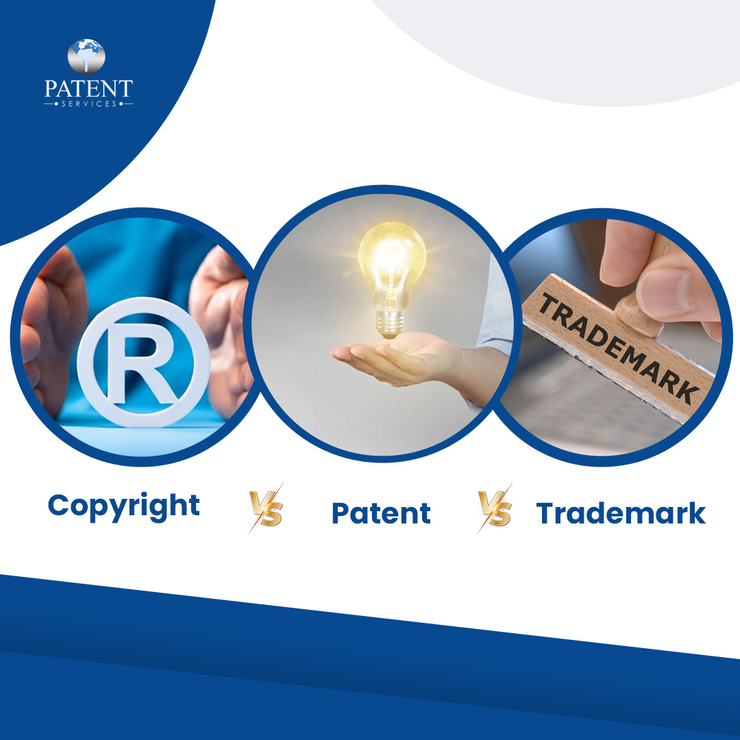
Watching your invention or any idea to be under someone else’s ownership, be it a book or a machine. So, you start considering the options to get copyright, patent or trademark for your product and legally have the authority. But what should you opt for? Should you trademark your product or get a patent for it? Don’t worry as after reading this guide on Copyright Vs Trademark Vs Patent, you will have clear idea about-
- ● the difference between patents, copyrights and trademarks
- ● their costs and,
- ● which one is the best for you
You will be able to make a sound decision on the basis of varying factors including benefits, duration and eligibility that come with each of them.
Let's begin.
Patents, Copyrights and Trademarks- What is Best?
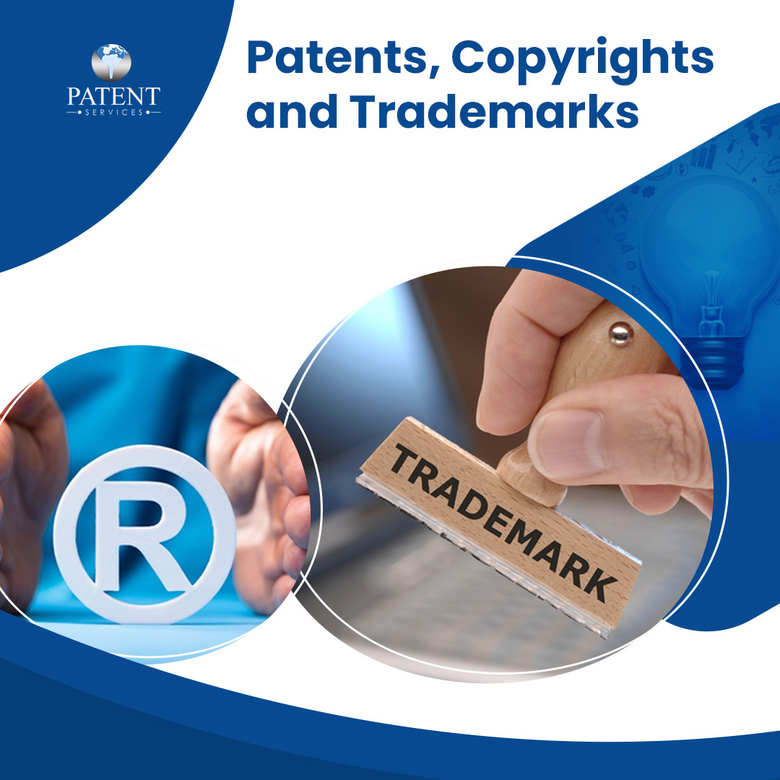
Intellectual Propertyheft is the one of the worst ones of all nightmares. It is a troublesome event that is more maddening today than it ever was. There are different ways to protect the product or service that come out of the veil as your creation. If you have clicked a photo or authored a book, then you will go for a copyright. You will opt for a trademark protection if you operate a business and a patent is likely to be your take on protection if you have created something that stands out and is of some use.
How do these three situations differ?
In order to get your IP or Intellectual Property protected, you need to understand the right way to do it. It is an important question of what to choose between patents, copyrights and trademarks as each administers different products and duration along with multiple benefits.
Let's get started on this section to understand how US patents and trademarks as well as copyrights differ.
Copyright vs Trademark vs Patent- Understanding the Terms
Let's start this copyright vs patent vs trademark comparison guide with the definition of each of these terms, their usage, duration and benefits.
What is Copyright?
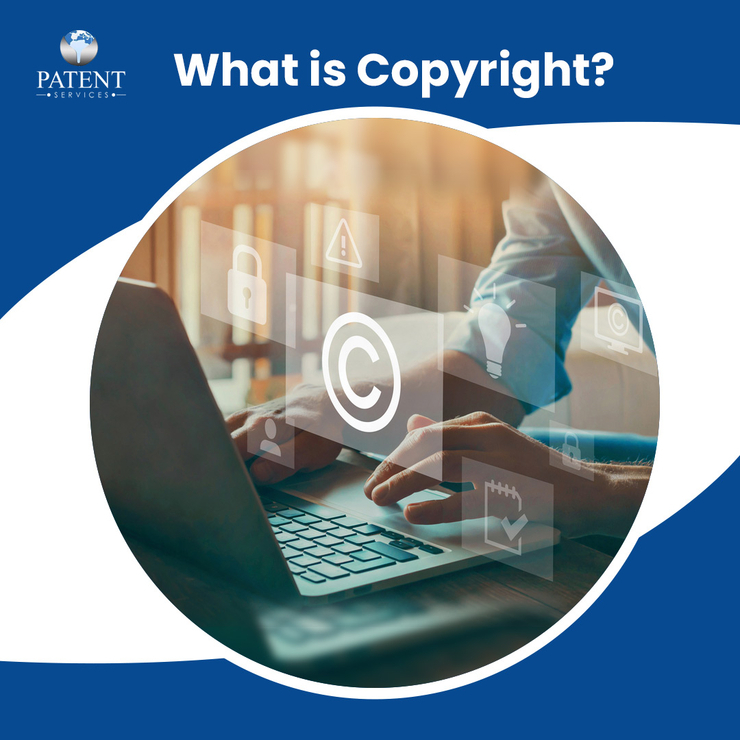
A copyright refers to a collection of rights that are automatically endowed to you after you have composed an original work. In order to understand the rights under copyright, it is best to analyse them in a set of sticks wherein each stick expresses a right granted to you as the owner. This will enable you to see how to use or licences these rights. This collection of rights comes in different facets including the right to prepare derivative works, reproduce the work, distribute copies, display the work publicly and perform the work publicly.
As an owner of the copyright, you get the authority to maintain each right and even to transfer them to one or more people individually. You also have the authority to transfer them to one or more people collectively. You can attain these rights in different ways such as licensing, assigning, or any other form of transfer. Know that the power of copyright opens the door for you to make a choice for the way your creation is made available to the public. Copyrighting offers you legal evidence as well as a public eye of ownership. If any individual gets involved in the infringement of copyright that has been provided to you, then they can be sued in court given that you have legal documents well kept.
Copyright eligibility- who can use copyright and what does it protect?
There are different forms of creation and composition that fall into the eligibility bracket for copyright. Know that these are genealogy creative forms of work. Copyright can be sought by those who are titled authors, artists, architects, choreographers, and any other type of creative professional. You cannot have your mere idea copyrighted but you can get the copyright for the tangible form of that idea. Now, this may include photographs, sculptures, original works of authorship, choreography, sound recordings, architectural works, motion pictures, and other forms of creative works.
Duration of Copyright: The validity of copyright remains for a lifetime.
Copyright Cost in the USA
The cost of a copyright application will charge you between $50 and $65. Know that it also depends on the type of form. Filing it online will cost you around $30-40.
| Particulars | Cost |
|---|---|
| Initial Filing | $50 to $65 |
| Expedited Services and Certification | $240 to $750 |
| Renewal | $120 to $230 |
When it comes to the Special Services and Renewal of Copyright, the cost goes up to $750 and the cost of renewal of copyright falls between $120 and $230.
What is a Trademark?
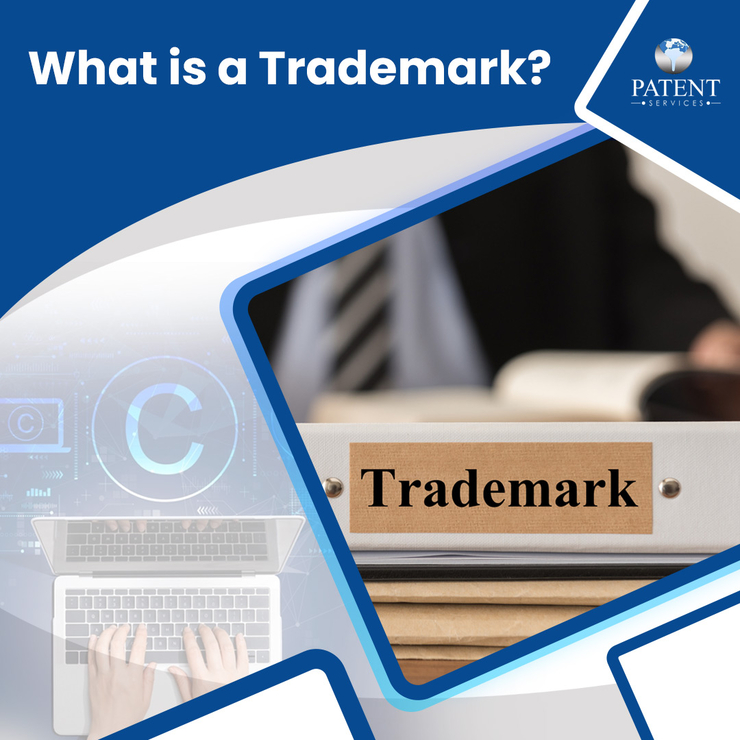
A trademark, as specified by the USPTO, refers to a word or phrase, symbol or/and design that expresses and distinguishes the form of the work of one entity from that of others. A service mark means a word, phrase, or any symbol, and/or design that distinguishes one form of creation from the form of a service rather than the item or goods. You can understand a trademark in the face of examples such as brand names, logos and slogans. Registering a trademark betters the rights of an individual by granting legal evidence as well as public notice of ownership. It acts as evidence enough of a nationwide right to the mark and enables the individual to sue anyone who practises infringement. Know that registered trademarks can use the symbol ®.
The term 'trademark' is generally used to refer to both trademarks as well as service marks. Just like what happens in the case of copyright, an individual does not have to register a trademark/ service mark in order to be endowed with protection rights. However, you must know that there are some legal advantages that come with the registration of the mark with the USPTO. You can see it as an overlap between trademark and copyright law which can happen when the invention is protected under both copyright and trademark. For example, if you use a graphic illustration as a logo then the design may be secure under both copyright and trademark.
Eligibility for a trademark- who can use a trademark and what does it protect?
Business and product owners can file for a trademark. It helps protect a word, name, slogan, design, symbol, and/or image that identifies a business or brand and distinguishes it from others in that field.
Duration of a trademark: While a trademark is valid for an unlimited span of time, you have to get it renewed every 10 years.
Trademark Cost in the USA
The cost of trademark registration in the USA depends on the class of goods and items. It also depends on the type of trademark application you are filing. Then, you also have to bear the maintenance cost for the same.
The trademark federal filing costs around $350 for a single class of goods and the legal fee will fall around $950. You will have to pay the same cost of filing registration for each class in case you have multiple goods and items that are categorised under different classes. Then there is an application for renewal which you have to file every 10 years. This will cost you $525 as a filing fee.
| Particulars | Cost |
|---|---|
| Initial Filing | $350 per class |
| Legal Fee | $950 |
| Renewal Filing | $535 |
What is Patent?
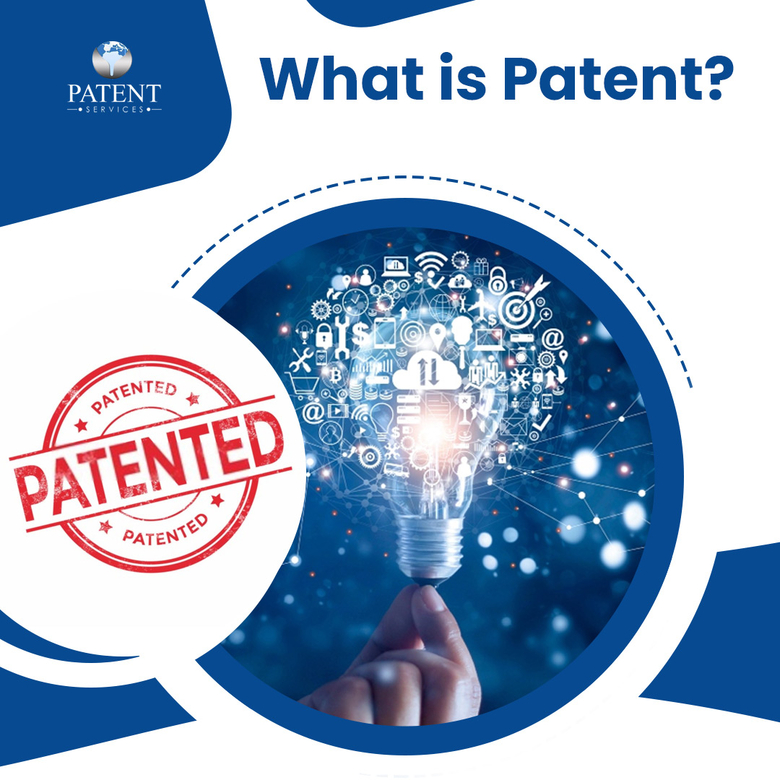
A patent helps protect your original invention for a certain span of time and it is provided by the United States Patent and Trademark Office (USPTO). An incentive is given for companies/ individuals for continuing to develop innovative products and/or services by granting the rights for producing a product without the risk of competition for the duration of the patent registration.
There are three types of patent- utility patent, plant patent and design patent. Here’s what role each one of them plays in their own distinct way-
1. Utility Patent
A utility patent is a type of patent that is granted to creators who have invented new manufacture, process, composition or the machine. They are also granted to those who better existing manufacture or a process, machine or any composition in some way. They cover aspects varying from manufactured goods, to technical corners along with the chemical compounds.
2. Plant Patent
A plant patent is another type of patent that is given to an individual who comes up with a new plant. To get this patent, the plant must be asexually reproduced. The investor must keep in mind that the plant should not be a tuber propagated one, or discovered in an uncultivated region.
3. Design Patent
A design patent is a type of patent that is awarded to those creators who create a new l design for a product. This creation may come in the form of a shape, a configuration or a non-functional part.
Patent eligibility- who can use a patent and what does it protect?
Inventors and designers can apply for patents. A patent takes care of one’s inventions with a new or enhanced functionality which includes processes, machines, or chemical compositions, alongside the design for a product.
Duration of patent: The owner is provided with an exclusive right to stop others from producing, using, selling, or importing their protected invention after the patent is filed. A patent does its job for a period of 20 years. However, it cannot be renewed.
Patent Cost in the USA
As far as the cost of patents in the US is concerned, the figure varies from type to type. While a design patent costs between $2,000 to $5,500, getting a plant patent will cost you between $4,500 and $7,620.
| Types of Patent | Patent Cost |
|---|---|
| Design Patent | $2,000 - $5,500 |
| Utility Patent | $5,000 - $20,000 |
| Plant Patent | $4,500 - $7,620 |
Copyright Vs Patent Vs Trademark- Advantages
If you'd like to find out the differences between patents, copyrights and trademarks, what is the better way than counting the benefits offered by each?
Let's check out the benefits of copyright, patent and trademark to help understand what each brings to the table for the inventors/ creators-
Benefits of Copyright
Below mentioned are the advantages of copyright-
- ● Legal Protection
The most important benefit that a copyright registration comes bearing for you is under the law. The step of registration shelters your published work and keeps it safe and sound. In absence of such registration, it can be a challenging task for you to prove your case in court. For instance, a film producer may launch a movie that looks similar to one that has been released before but this movie can’t be proved to be plagiarised in court without a copyright registration.
- ● No financial loss
One of the major advantages of copyright protection is the prevention of monetary losses that may arise from copies of the original work being made out there. Works including music videos and books are examples of inventions showing how creation is copied and shared. A creation like movies or software is downloaded and shared illegally. It then results in a massive loss for the creators and authors. Copyright makes sure that the inventor is steered clear of any such risk of monetary downfall due to piracy.
- ● Prestige and Reputation
Copyright registration makes sure that the reputation of the creator or author remains protected by taking care of their work. For instance, a music composer/ author can prevent shoddy copies of their work, avoiding any loss of reputation. One more advantage of copyright protection is that it allows the holder to enjoy the prestige that a certain work of composition belongs to them.
Benefits of Trademark
Here are the major benefits of the trademark which you everyone should know about-
- ● Exclusivity of Rights
The owner of the Registered Trademark rejoices in the exclusive rights over the trademark. The owner can count on the same for all the products that fall under the class(es) applicable. The owner also enjoys the sole ownership of the Trademark and they can stop others from the unauthorised practice of the Trademark under the class where it is registered. It comes with the right to sue the person practising the unauthorised use of the Trademark.
- ● Recognition of Product
A trademark makes it easy to spot your products. It makes your product recognizable and shapes its identity of products differently from that of other existing and foreseen products in the same field. Overall, it turns out to be an efficient commercial tool given that the logo easily conveys your vision and unique characteristics of your brand.
- ● The ® symbol
Once you have got the trademark registered, you can start using the ® symbol on the logo stating that it is your registered trademark and others cannot use the same trademark. This symbol is exclusive to all kinds of usages and rights. In case someone else uses the trademark then you have the right to sue that party provided your trademark is registered.
- ● Protection against infringement
No competitor or individual can use the wordmark/logo that has been registered under trademark by you. However, if anyone uses it without your approval of the trademark or commences any deceptive practices of the same, then you have the right to get legal protection and prevent the person from doing so.
Online Trademark registration is maintained at a very low maintenance cost. After you have the trademark registered, you only have to pay the cost of maintenance for the trademark and also the trademark renewal cost which is due after 10 years of the registration. Know that it is cost-efficient and protects the unparalleled image of your company.
Benefits of Patents
Now let's take a look at the key benefits of patents-
- ● Safeguards the invention
A patent allows you to enjoy the right to prevent others from manufacturing, copying, selling or importing your creation without your permission. It helps you safe-keep your intellectual property.
- ● Rights on the usage of the invention
One of the important benefits of patents is that you can use this invention yourself. This is not it, you have the authority to licence your patent for anyone other than you to use it. You can also sell it.
- ● Monetary gains
Since you have the right to sell your patent-protected invention, you enjoy the scope to welcome revenue for the business. Know that a number of businesses exist only to enjoy the royalties gained from a patent they have licensed.
- ● Safekeeping of Product for a Long Duration
Another benefit of patents is that you can enjoy the protection of a patent for a predetermined period which also allows you to restrict your competitors to the bay.
How Different Copyright, Patent and Trademark Are From Each Other?
There is a field of varying parameters that tell us the major differences between patents, copyrights and trademarks. First of all, the difference is based on the target objects (invention/ product) and the purpose behind them. Apart from that, the benefits also help us see the contrasting line between these three terms. This is not it, the difference is also determined by the duration these rights stay for.
Let’s move ahead and spot all the differences between copyright, patent and trademark.
Major Differences Between Copyright, Patent and Trademark
The difference between the copyright, patent and trademark can be seen clearly on the basis of the following factors:
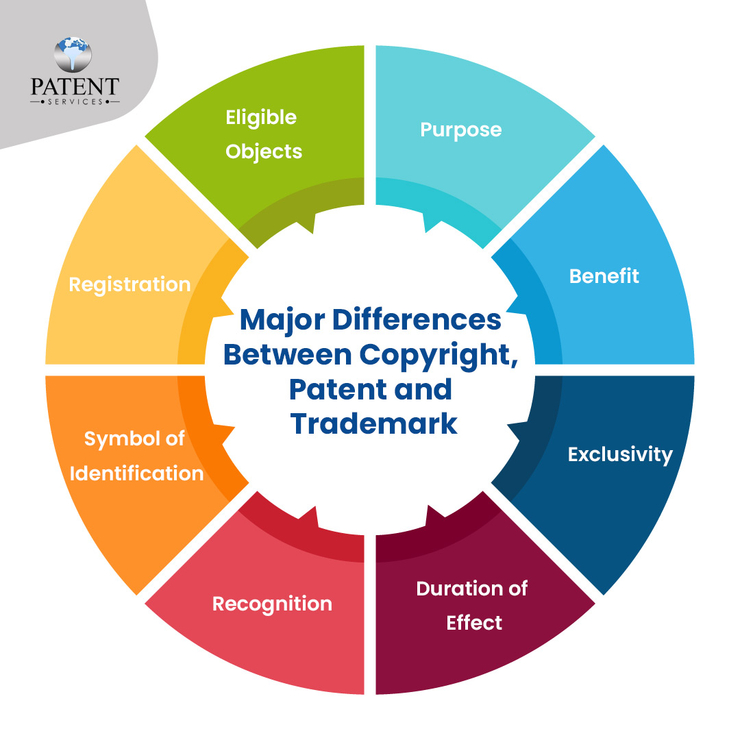
1. Eligible objects- While the trademark acts as a way of protection for a trade name/ company brand name/ logo label/ taglines/ slogan or/and domain names, the copyright works towards protecting one’s dramatic, artistic, and musical compositions. Patent is all about protecting the authorising the rights of inventors on their invention which may be in the form of a machine, a process or method and a composition of a matter.
2. Purpose- The purpose behind the usage of the trademark is to safeguard the exclusivity of the mark for one’s products/ services in the market. The copyrights grant one the exclusive right to use as well as distribute whereas the patent protects the ownership of the invention.
3. Benefit- The trademark protects other competitors from practising the similar type of marks/texts/logos in their branding and the sole purpose here is to establish the brand and trust among the customers. On the other side, copyright keeps any individual other than the creator from reproducing or selling the copyrighted work online and offline. As of the patent, it gives one the right to stop others from copying, making, selling or importing their invention.
4. Exclusivity- Trademark not only offers the exclusivity for the product or services but also as a means to retain it. While the creator can leverage their copyrighted work into making financial profits, the patent allows inventors to protect their intellectual property.
5. Recognition- Customers get to enjoy a sense of belongingness with the product/ services when the product is trademark-protected and they can recognize the brand seamlessly. Also they can gauge the quality of service/ product as per the brand value. On the other hand, a copyright-protected creation is recognized with its original aspects. When it comes to patents, the product is recognised on the basis of its practical nature.
6. Duration of effect- The trademark registration remains valid for a period of 10 years and it can be renewed in order to continue protecting it from infringers while a copyright stays valid for a lifetime. Patent has to be renewed from time to time in order to keep it active.
7. Symbol of Identification- A trademarked product/ logo/ service is allowed to use the ® symbol once the registration is complete. When it comes to copyright, the symbol © is used as a sign of the protection of original works under the copyright registration and it doesn’t necessarily demand registration as the registration itself proves the originality. Patent does not have any specified symbol of recognition.
8. Registration- The registration of the mark is important in order to use the ® trademark symbol as well as the patent tights but one does not mandatorily have to have registration in order to use the © symbol as a means to add copyright protection given that registration itself is the proof of originality in this case.
Final Thoughts on Copyright vs Patent vs Trademark
Now that you have an idea of what patent, trademarks, copyrights are about, you should be able to understand which one suits the safety standards for your product. After all, when you believe that your work is of value and that it has distinguished standing then there is no alternative for its registration.
